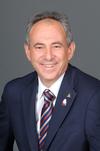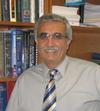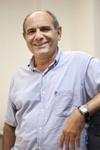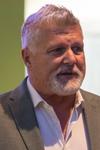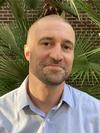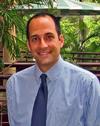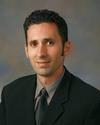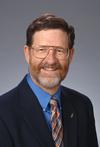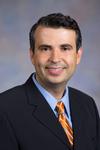Research Terms
Norman Fixel Institute for Neurological Diseases at UF Health
| Director |
Michael Okun Kelly Foote |
| Phone | 352-294-5400 |
| Website | http://mdc.mbi.ufl.edu |
| Mission | The overall objectives of the UF Center for Movement Disorders and Neurorestoration are: 1) to be at the forefront of cutting edge research; 2) to provide effective education at all learning levels—medical students, residents, fellows, staff, patients and the community; 3) to develop outreach programs that start at home, but extend beyond the United States; and most of all, 4) to provide the best comprehensive medical and surgical care possible to an internationally drawn group of patients afflicted with Parkinson’s disease and other movement and related neuropsychiatric disorders. |
This iPhone app can help users be compliant with complex medication regimens. Mobile health apps allow individuals constant access to tools that increase their wellness, and the market for these health apps is expected to reach $500 million by 2017. Individuals who take precise dosages of medications at scheduled intervals, such as patients with Parkinson’s disease, struggle to stay on track with the daily dosing regimen and prescription combinations. Therefore, caretakers for these individuals, and the individuals themselves, have to implement this difficult regimen with their own scheduling system or one of the rudimentary medicine scheduling applications available in the market.
Researchers at the University of Florida have developed a mobile app that allows the user to schedule complex medication regimens in an intuitive and dependable way. The application allows users to input medications and add descriptions, pictures, dosage requirements, and recurring reminders for every medication. The application also requires users to specify whether a specific medication was “taken” or “not taken” at the scheduled time of ingestion, which encourages compliance among medication users.
Mobile app that organizes medication regimen for individuals with complex medication schedules
This mobile app is designed to assist individuals who have frequent and complex medication regimens. Its primary function is to allow users to input custom descriptions of every medication they must take and enter these into a scheduling interface. This helps to identify the correct dosages at the correct times, along with reminding the user of any substances/foods to take or avoid with the medication. Additional functions include the ability to supplement medication descriptions with custom photos and icons, and the ability to export a PDF of a user’s medication schedule. The application also encourages medication compliance by requiring the user to indicate whether or not they have taken a medication at the specified time of compliance.
This therapeutic vaccine treats Lewy body diseases, such as Parkinson’s disease, by clearing misfolded protein aggregates utilizing a patient's own immune system. An estimated 1.4 million people in the U.S. suffer from Lewy body dementia, making it the second most frequent form of degenerative dementia in the country. However, Lewy body diseases often go misdiagnosed until patients present symptoms associated with moderate or severe stages of the disease. Incorrectly prescribed medications due to misdiagnosis further worsens the disease state, potentially resulting in death. Available treatments for Lewy body diseases include a peptide-based vaccine under clinical trial investigation. However, the use of peptide and related antibody-inducing vaccines runs the risk of prompting an auto-immune response in the patient. Other treatment options for these diseases provide only symptomatic relief that wears off as the disease progresses and does nothing to prevent further neurodegeneration.
Researchers at the University of Florida have developed an adoptive cellular therapy vaccine that makes use of the patient’s own cellular immunity to reduce the misfolded protein aggregates characteristic of Lewy body diseases, providing treatment by inhibiting future neurodegeneration. Since this vaccine does not involve the use of antibodies, the chance of patients experiencing an auto-immune response decreases.
Adoptive cellular therapy vaccine that treats Lewy body diseases with lessened risk of auto-immune response
This adoptive cellular therapy involves taking T cells from the patient’s body, exposing them to an alpha-synuclein mutant antigen, and administering the T cells back into the patient’s body. This grants the patient’s immune system the ability to specifically target cells containing the misfolded alpha-synuclein aggregates and clear them from the body, preventing accumulation of the mutant proteins.





